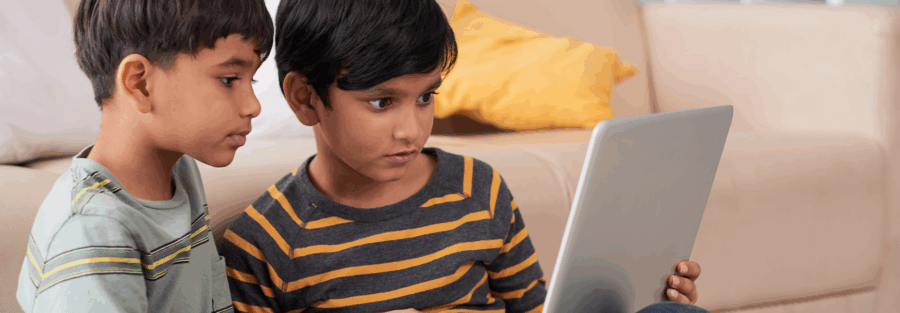In the digital age, social media has become an integral part of students’ lives, providing platforms for communication, entertainment, and self-expression. While social media offers many benefits, its impact on student mental health is a growing concern for educators, parents, and mental health professionals. The constant exposure to curated images, peer comparisons, and the pressure to maintain a perfect online persona can significantly affect a student’s well-being. This issue is particularly relevant in Sri Lanka, where the rapid adoption of digital platforms has brought both opportunities and challenges.
The Growing Influence of Social Media on Students
Social media platforms such as Facebook, Instagram, and TikTok, are now integral to the daily lives of many students in Sri Lanka. These platforms are not only a means of staying connected with friends and family but also serve as primary sources of news, entertainment, and even academic support. However, the influence of social media is not always positive. The ease of access and constant connectivity can lead to various psychological and emotional issues that impact students’ mental health.
Increased Pressure and Anxiety
One of the most significant ways social media impacts students’ mental health is by creating pressure to present an idealized version of themselves. Platforms such as Instagram and Facebook often encourage users to share only the most flattering aspects of their lives, leading to feelings of inadequacy among those who perceive their own lives as less exciting or successful. Students may feel anxious about their appearance, social status, or academic performance, leading to an increase in self-esteem issues and mental health struggles such as anxiety and depression.
In Sri Lanka, where societal expectations often place high pressure on academic performance and social behavior, social media exacerbates these concerns. Students may compare themselves to peers who appear to be excelling or living an idealized lifestyle, which can cause feelings of inadequacy and heightened stress.
Cyberbullying and Online Harassment
Another significant concern is the rise in cyberbullying and online harassment, particularly among teenagers. Social media platforms provide anonymity, which can embolden individuals to engage in harmful behaviors such as bullying, spreading rumors, and attacking others online. The long-lasting nature of online content makes it difficult for students to escape from these negative experiences, which can severely impact their mental well-being.
In Sri Lanka, incidents of cyberbullying have started to rise, with many students becoming victims of online harassment through social media platforms. Schools and parents need to work together to identify signs of cyberbullying and provide support to those affected. It is also important to encourage open communication between students and trusted adults so that they feel empowered to report any instances of cyberbullying or online abuse.
FOMO (Fear of Missing Out)
Social media amplifies a phenomenon known as “FOMO” – the fear of missing out. Students are often exposed to posts about social gatherings, vacations, and exciting events that others are attending. This constant reminder of what they are not a part of can lead to feelings of exclusion and loneliness, particularly among those who may already feel isolated or disconnected in real life. The fear of missing out can also lead to unhealthy online habits, such as excessive scrolling and late-night usage, which disrupt sleep patterns and further contribute to mental health issues.
Social Comparison and Body Image Issues
Social media platforms are heavily focused on visual content, where students are bombarded with images of idealized beauty, lifestyles, and material success. This constant exposure can distort self-perception and lead to body image issues, particularly among teenage girls. Students may develop an unhealthy obsession with their appearance, constantly comparing themselves to the often heavily edited or curated images they see online. In Sri Lanka, where cultural expectations about appearance and behavior can be quite rigid, students may feel additional pressure to conform to societal beauty standards. This can exacerbate body image issues and lead to eating disorders, depression, and anxiety.
The Importance of Digital Literacy and Education
While social media presents challenges, it is important to note that digital platforms can also serve as valuable educational tools. However, for students to fully benefit from these platforms while minimizing the risks, they need to be equipped with the right knowledge and skills. This is where digital literacy becomes crucial.
Schools in Sri Lanka must play an active role in educating students about the potential risks of social media and how to use these platforms responsibly. Incorporating lessons on online etiquette, the dangers of cyberbullying, privacy settings, and the impact of social media on mental health into the curriculum is essential. Additionally, parents should be encouraged to engage in conversations about social media usage and its effects on mental health. Open communication between teachers, students, and parents can help mitigate the negative impacts of social media.
Providing Support for Students
It is essential for schools to create a supportive environment where students feel comfortable discussing their mental health and social media experiences. Schools can provide counseling services and create peer support groups that offer emotional support to those struggling with the pressures of online life.
Furthermore, in cases where students encounter harmful or inappropriate content online, it is important to have a clear reporting system in place. The IWF Sri Lanka Reporting Portal (https://report.iwf.org.uk/lk_en) can be a useful resource for reporting harmful online content, including instances of online abuse or exploitation. Schools should ensure that students and parents are aware of these resources and know how to use them when necessary.
In addition, the National Child Protection Authority (NCPA) (www.childprotection.gov.lk) is another valuable resource for addressing serious cases of online abuse. The NCPA provides support and assistance to children and families in need, offering a 24-hour helpline at 1929.



